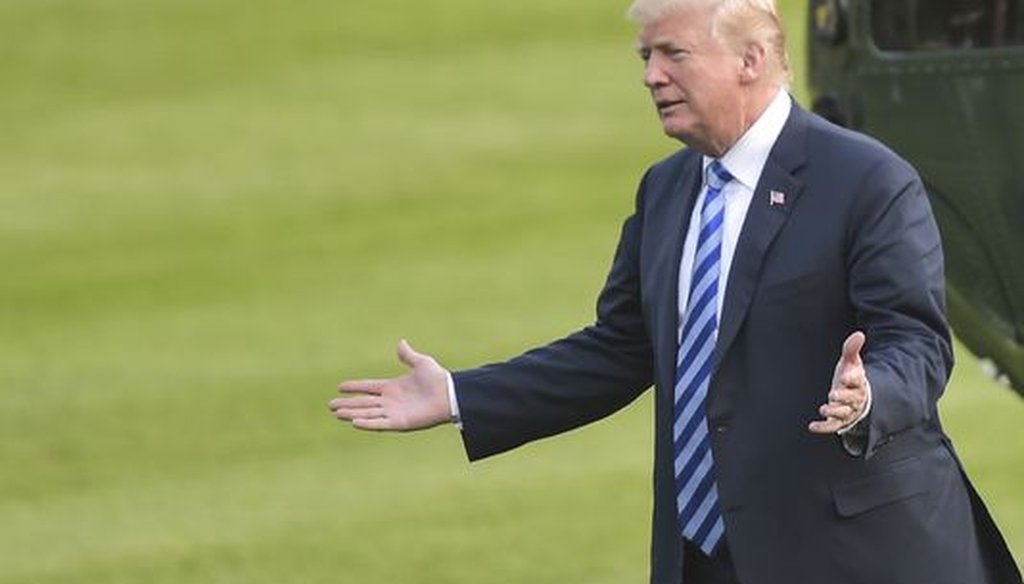Stand up for the facts!
Our only agenda is to publish the truth so you can be an informed participant in democracy.
We need your help.
I would like to contribute

President Donald Trump, shown here arriving at the White House on May 4, 2018, is expected to make a major decision on whether the United States will remain in the Iran nuclear deal. (Getty Images)
President Donald Trump announced on May 8, 2018 his decision to withdraw the United States from what is known as the Iran nuclear deal, which is aimed at preventing Iran from getting a nuclear bomb,
The 2015 deal restricts certain Iranian nuclear activities for periods of between 10 to 25 years, and allows for more intrusive, permanent monitoring. It also forbids Iran from pursuing nuclear weapons in the future. In exchange, Iran was relieved of crippling economic sanctions.
For some insights on the deal, here’s a look at three fact checks we did on it. All arre from 2016 and were on statements ade by Wisconsin Republicans.
Ron Johnson: Barack Obama's administration has admitted that money from its Iran nuclear deal "would go directly to terrorism."
The senator’s statement went too far. Obama administration officials had said they expected some portion of money from the deal with Iran -- $100 billion to $150 billion, mostly in Iranian assets that had been frozen in foreign banks -- would end up with groups that are labeled as terrorists.
Reince Priebus: Hillary Clinton's Iran nuclear deal "lined the pockets of the world's number one state sponsor of terrorism with your money."
Priebus, then chairman of the Republican National Committee, also went too far in his claim. The United States did label Iran as the top state sponsor of terrorism. But the deal was struck 2.5 years after Clinton left the Obama administration. And the vast majority of the tens of billions of dollars that Iran gets is not American money, but its own frozen assets.
Paul Ryan: The decision for the United States to buy heavy water from Iran "will directly subsidize Iran’s nuclear program."
There was an element of truth in the House speaker’s claim about the $8.6 million transaction. Heavy water, which can be used to make a nuclear weapon, clearly is part of Iran’s nuclear program. But the fair-market-value purchase, for a material that the U.S. will use in nuclear research, was not a true subsidy. And by reducing Iran’s heavy water stockpile, the purchase helped Iran comply with the Iran deal’s aim of making it harder for the country to develop a nuclear weapon.
Our Sources
PolitiFact Wisconsin items as noted




















